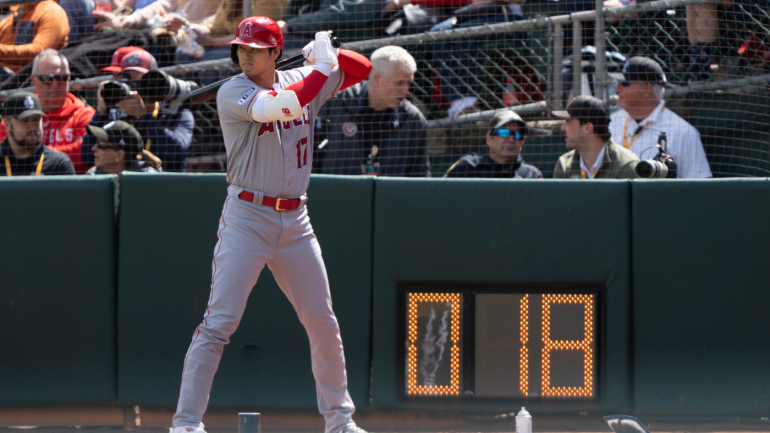
On Thursday, Major League Baseball announced a series of rule changes that were more like tweaks or modifications. They were also, mostly, pretty unnecessary.
Not all of them were bad. Widening the running lane between home and first was a win. I also liked the one where if a pitcher takes the mound (not in the bullpen; the actual game mound) to warm up, he has to face at least one batter.
The rest of the changes were attacking a problem that doesn't exist anymore: So-called pace of play, which the league generally discusses in terms of how long the games take to finish.
The pitch clock was already a win
The average time of game in 2023 dropped to 2:42, down from 3:06 in 2022. That could mostly be attributed to the implementation of the pitch clock. It was a major success in the eyes of so many people. I'm one of those people.
In MLB's press release announcing the changes, the league pointed out that from April to September, the average time of game increased by seven minutes (gasp!). Apparently this was enough to spring commissioner Rob Manfred and his group of owners into action to rectify this horrible injustice against baseball.
The funny thing is, MLB even conceded in the release that the increase in game time was probably more around five minutes when factoring in things like an increase in runs scored as the season progressed (as the weather warmed up, for example).
Is five extra minutes worth further rule changes after just one year of the players and umpires and fans getting used to said changes? And make no mistake, the fans are the only thing that matters here. The only reason to put a clock on this game is to make sure we can keep the attention of the highest number of fans possible moving forward. If not for needing the fans, the clock wouldn't even be a discussion.
I'm trying to think of any fan in the world who was watching last season's product and thinking, "you know, they really need to further lock this thing down and shave off another five minutes."
How laughable is that?
Of course, Manfred and his cronies would probably say a bigger-picture view is necessary and that if things were already increasing in just a few months, they need to get ahead of the matter before it goes up another 15 minutes.
I'd push back here, though. Some players have already claimed that the pitch clock is increasing injuries in pitchers. It's impossible to prove right now, but can't we give it another few years and check the data before decreasing the pitch clock with runners on base?
Plus, the biggest problem with the game before the pitch clock wasn't the actual time of game nearly as much as the pace. It was the dead time with players standing around doing nothing that was killing the game in the matter of public opinion from casual sports fans, especially those at home with so many other viewing options. Watching players stand around for 30 seconds was enough to drive people away. Putting in the pitch clock was an amazing victory there, as studies showed across the board that these casual fans loved the elimination of so much of that dead time.
If the owner side wants to show us data that fans were driven away by September due to the extra five minutes of game time, by all means, let's see those studies.
I won't be holding my breath.
More contentious future CBA discussions
Everyone remember the "defensive" owner lockout before the new CBA was finally signed on March 10, 2022? That new agreement only runs through the 2026 season.
Immediately when the new rules were announced on Thursday, MLBPA executive director Tony Clark issued a statement saying the players were against these changes and, basically, they wanted to let the radical new rules from this past season breathe a little bit. It's an entirely reasonable stance.
Now, let's look at the makeup of the body deciding the rule changes. The competition committee is made up of 11 voters, four of whom are players and one of whom is an umpire. That leaves six owners, meaning they can outvote the players on any changes they want.
Now, bear in mind, the players eventually have to agree to the new CBA and talks were incredibly contentious last time around. A good negotiator with the future of the game in mind might say that some battles aren't worth fighting. For example, there's no good reason to piss the players off (again) with these rule changes when the first year of the pitch clock was so wildly successful. In weighing the benefits of shaving off five minutes from the average time of game, is the cost of player aggravation really worth it?
I think the league should have been content to just take the W with the first season of the pitch clock.
Apparently, Manfred and his owners disagreed and decided the most important thing here was further guarding against the time of game rising in upcoming seasons.
Time will tell here, of course, but it seems like a totally unnecessary risk with precious little benefit.






















